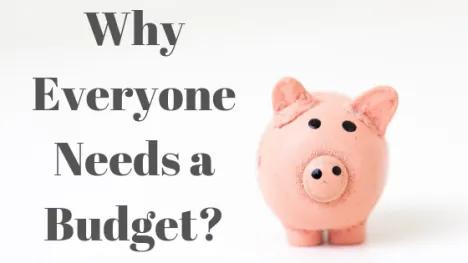
Ten budgeting and money saving tips for teens
5 min read
Money, money, money. You might work hard for it, but how do you make it work for you?
According to research by MyBnk, 61% of young people don’t recall receiving financial education at school. So, we've pulled together ten tips to help you get to grips with everything money — from money saving tips and budgeting tips, to dealing with your student loan and your state pension.
Money Saving Tips
Want to have a nice house one day and be able to be generous with your money? Then check out these money saving tips which will help make your money go further...

Understand interest rates
You’ll earn interest on your money when you keep it in a bank or building society savings account or Individual Savings Account (ISA). The rate of interest you’ll get will vary wildly depending on the type of account you have and which bank or building society you choose — so it’s best to do some research and shop around.
Understanding your Annual Percentage Rate (APR) from your Annual Equivalent Rate (AER) is a money saving tip that might sound boring but it’ll save your hard-earned cash in the long run. No idea what’s what? Then have a read of this Halifax article on the differences between APR and AER.
How to start saving money
Whether you’re able to save £1, £10, or £100, putting a little money away every month is one of the classic money saving tips. The easiest way to build this habit is to skim some money off as soon as you get it. It doesn’t have to be a lot, even a little bit every month adds up. Why not try the 50/30/20 rule:
- 50% of your income goes towards what you need (we see you food and bus fare)
- 30% goes to your wants (hello, new outfit and days out!)
- 20% of your income goes straight into your savings account
After a while, you might be surprised how much you’ll see in that savings account. If you can, add more, and watch the pounds grow and grow!
Start your pension early…
The future can feel like a long way off, but one important money saving tip is this: Don’t wait until you’re a pensioner to start a pension! The sooner you understand what pensions are all about, the better off you’ll be.
There are three kinds of pension:
-
State pension. Once you start working, you’ll automatically be eligible for a small state pension once you retire. But it’s unlikely you’ll be able to live on this comfortably when you reach your gran’s age.
-
Workplace pension. Automatic enrolment into your employer’s workplace pension only applies to people aged 22 or over. But if you’re younger, and earning £6,240 or more (in tax year 2023–24), then you can choose to opt into your workplace pension which means your employer will put money into your pension pot.
-
Private pension. If you start saving now for a private pension then it could see you laughing well into your nineties!
Budgeting Tips
If you’re not sure where to start with budgeting, or you’re unsure what a budget is, then check out our online experience all about it, where you’ll learn all the lingo you need! Then you’ll be ready to get on track with these top budgeting tips…

Make it digital
There are so many budgeting apps around that it’s almost impossible not to monitor your money. Try Spending Tracker, Daily Budget, or Emma. Becoming more aware of how you spend your money will help you start budgeting and see where you can make some savings.
Shop around
You know the saying: look after the pennies and the pounds will... buy you things you really want. One budgeting tip is to buy supermarket own-brands, as they’re often made in exactly the same factories as more expensive branded items! Shopping wisely when it comes to groceries and toiletries could cut your outgoings by a third.
Ask questions
Asking yourself this question — “Do I really need it” — is a simple budgeting tip because it helps you to think about what you’re buying and if you really need it. The ‘next-level budgeting tip’ is to actually wait 24 hours before buying those new trainers, and then see if you still want to part with the cash or if you can actually live without them.
Money Management Tips
The Notorious B.I.G says ‘Mo Money, Mo Problems’, but you’ve got to start somewhere, so let it be here! If you’re lucky to have had financial education at school or home, then you might already be familiar with these top tips, but if not then read on…
Check your wages
There’s nothing like putting in the hours at a job and pocketing those sweet pounds in return. It also gives you a good idea of how long it takes to earn what you spend. Here’s what you need to know about your wages:
- The minimum wage for anyone under the age of 18 is £6.40 per hour. So if you’re being paid less than that, your boss is breaking the law! And remember, this amount is the minimum — you’re perfectly within your rights to earn a higher hourly wage. Either way, it’s good to know your rights.
- Whether you’re working full time or part time, you should get a payslip every month. Not sure what all the details on your payslip mean? Read our blog on what your payslip means. The only workers who won’t get a payslip are freelancers or contractors.
Get a good bank account
Shopping around for the best deal is key when setting up a new bank account. It’s your money, so make sure it works for you. The important things to look out for when choosing which account to go for are:
- Current accounts with high AER.
- Free money or gift card when you join.
- Good customer service.
- Better app with useful features. Reviewing your current account and savings accounts is a great habit to get into, and if there’s a better account out there then go ahead and make the switch.
You can also watch our online experience all about mastering your finances, with a specific look at different bank accounts, below!
Deal with student debt
While it is best to avoid getting into debt, student loan debt isn’t generally something to fear. That’s because:
- Student loans don’t affect your credit score or ability to get a mortgage.
- Repayments are automatically taken as a percentage (currently 9%) of your salary once you start earning above £25,000. For example, if you earn £26,000 (£1000 above the threshold) your annual repayments would be £90.
- Student debt is wiped out after 40 years regardless of how much you still owe.
If you’d like to read more about student debt, the experts at MyBnk have a great article breaking down recent changes to student finances and what the future will look like.
Talk about it
We get it: talking about money can feel a bit cringe. The stats about financial education in schools prove that point! But ignoring your finances will only come around and bite you in the wallet. So talk to your family and friends about where you’re at with your finances and which money saving tips or budgeting tips you’re trying to follow. At the same time, don’t compare yourself to others — do what’s best for you.
You can learn how to be moneywise, boost your confidence, and make lifelong friends on an NCS experience near you - so head to MyNCS to grab your place today!

